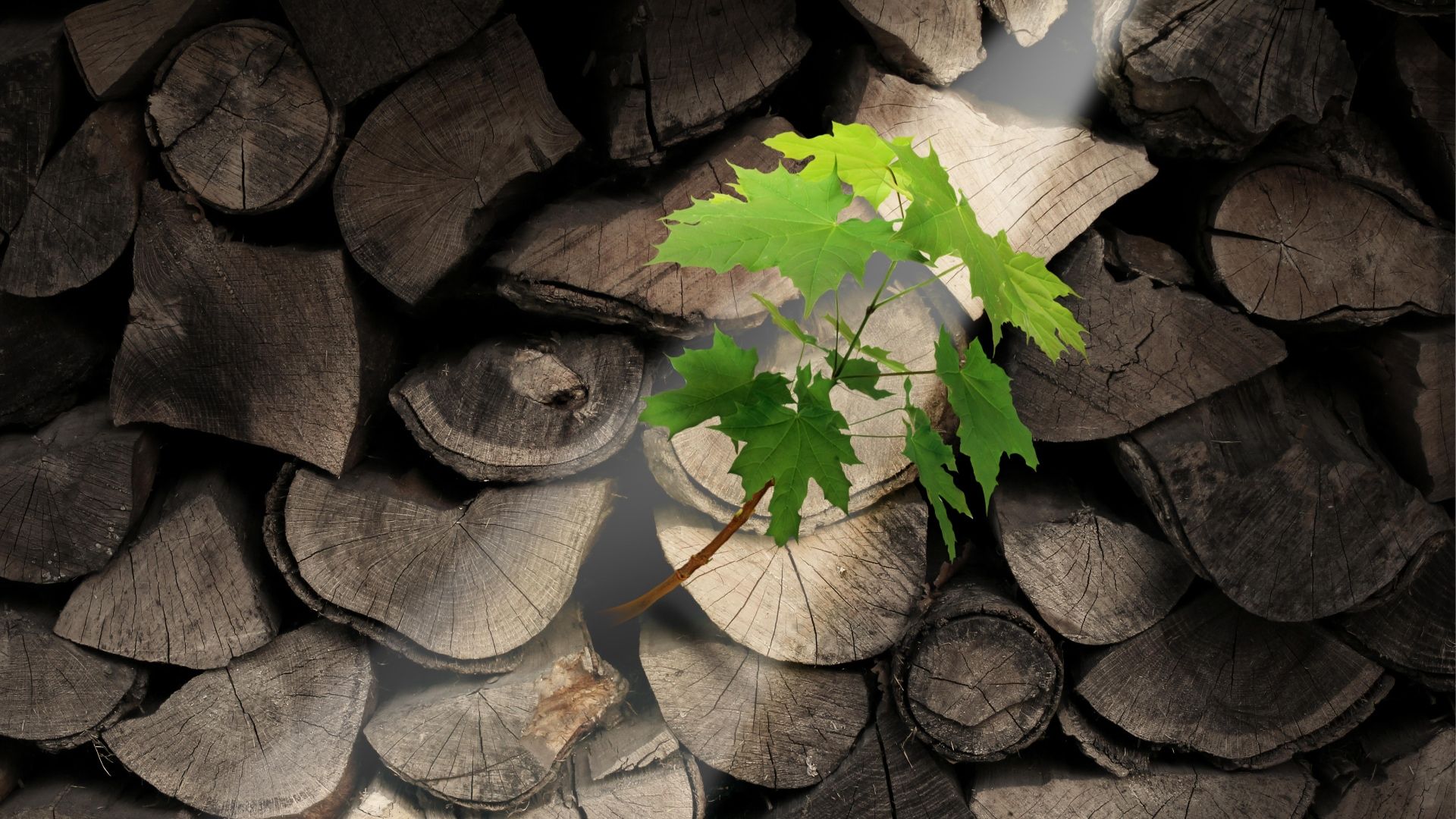The Unstoppable Gospel (Colossians 1:1-14)

Big Idea: You don’t need anything more than the gospel. You just need more of the gospel.
Have you ever been part of something big, something unstoppable?
I’m talking about something like a sports team that goes undefeated and then wins the championship, or a company that grows rapidly in both size and profitability, or an election in which the winning party doesn’t just win but crushes the competition. Have you ever been part of something like that?
I have, just once. I was once part of a competition a long time ago in which we completely crushed our opponents. I’m talking about a win so dominant that we started to feel sorry for the other team. We wondered if we should give them some sympathy points.
Char’s also experienced this more recently. She was part of a company that grew like crazy. She was able to participate from its early start to the company skyrocketing in growth. It was an exciting time to be part of that team.
Have you experienced something like that?
Actually, you have. I know that because you’re here today. You are part of an unstoppable force that has changed the world, is changing the world, and whose growth is unstoppable.
There’s nothing like being part of something unstoppable — but also nothing worse than losing our connection with what’s unstoppable because we take it for granted.
The Unstoppable Gospel
According to this passage, we have something that’s unstoppable, that’s changing the entire world. No power can oppose it. No force can slow it. Nothing can resist it. Wherever it goes, it will grow and change everything. What is it? The gospel.
Read verses 3-6:
We always thank God, the Father of our Lord Jesus Christ, when we pray for you, since we heard of your faith in Christ Jesus and of the love that you have for all the saints, because of the hope laid up for you in heaven. Of this you have heard before in the word of the truth, the gospel, which has come to you, as indeed in the whole world it is bearing fruit and increasing—as it also does among you, since the day you heard it and understood the grace of God in truth…
Here’s what he’s talking about: the gospel, the message that God is holy, that humanity is sinful, and that God is rescuing his people and creation through the perfect work of Jesus. Paul calls it “the word of truth, the gospel.” It is the church’s most precious possession, the truth that we return to day after day, week after week. We never grow beyond it.
And here’s what the gospel did: it changed them. It produced in them faith in Christ Jesus. They put their hope in Jesus. He became everything to them. He became their confidence. They trusted and accepted Jesus and what Jesus had done for them.
And that simple trust changed their lives. Their faith kept increasing. And not only that, but it produced a love for all the saints. They hadn’t just been brought into relationship with God; they’d been brought into relationship with other believers. They’d become part of a family, the church, and it changed them.
It also gave them resolute hope. They knew that no matter what happened in life, their hope was laid up in heaven. Their future was secure. Nothing could threaten it.
They had believed the message of the gospel, and it had changed them permanently. There was no going back.
But that’s not all.
Not only had the gospel changed them, but it was changing everything. It “has come to you, as indeed in the whole world it is bearing fruit and increasing…” They had believed the same message that was changing the world. Everywhere it goes, it upends things. It grows in all kinds of soils, in every kind of climate. It spontaneously grows wherever it goes.
From Satan’s perspective, the gospel is like an invasive species. Somebody brings it into his territory and it just grows, killing all that he’s carefully planted.
Look at the growth of the early church. It started with 120 people in Acts 1, a ragtag group of nobodies. Nobody knew them. They had no influence. They were nobodies.
But a few days later, on the day of Pentecost, three thousand came to faith in Christ. Soon the number was five thousand. By the time Paul wrote this letter 30 years later, it had spread throughout the entire Roman Empire. By the year 300, despite persecution, at least six million people called themselves Christians. By the fifth century, it became the established religion of the empire.
Since then it’s spread around the world and spread in the most surprising places. For instance, forty years ago, Iran had about 500 Muslim-background believers. Today it has over a million. The church is exploding in the global south.
And here’s the crazy thing. I just compared the gospel to an invasive species in Satan’s territory, but it actually seems to be more like a native species that grows well in every soil. The National Christian Council of Kenya reported:
Wherever the Word of God—the preaching of the Good News—went amongst the animistic tribal populations of Kenya, the response was instantaneous, immediate, and enormous … the resultant Christianity in Kenya cannot be thought of as a foreign transplant, but rather must be seen as an indigenous plant from the very first … This is also striking refutation of the complaints still heard today that Christianity in Kenya is foreign … for, the statistical evidence dearly points to the fact that, literally from the very first days, the seed had successfully taken root in African soil.
Jesus once said in Mark 4:26-27, “The kingdom of God is as if a man should scatter seed on the ground. He sleeps and rises night and day, and the seed sprouts and grows; he knows not how.”
That’s what’s been happening for the past two thousand years. The gospel’s unstoppable. It’s changed you, it’s changing the world, and it one day will take over everything, and you’re a part of it.
The Danger: Blending the Gospel with Something Else
But here’s the problem, and it’s why Paul wrote this letter.
The Colossians were in danger of diluting the gospel message. They’d believed the gospel, but they had started to blend it with other teachings as well.
They had started to think that maybe Jesus was not enough. It was like they’d added other things — folk Judaism, ritualism, mysticism — in a giant blender with the gospel, and hit the blend button, thinking that the end result would look something like Christianity in the end.
The gospel is unstoppable, but they were in danger of letting go of that unstoppable gospel because they thought it might not be enough, because it was easy to blend in other things with it as well. The danger’s spelled out in Colossians 2:8:
See to it that no one takes you captive by philosophy and empty deceit, according to human tradition, according to the elemental spirits of the world, and not according to Christ.
It’s the same danger the church faces in every age. “In every generation Christians are tempted to go along with the ‘hollow and deceptive philosophy’ (2:8) of the times” (D.A. Carson and Douglas Moo).
The gospel’s unstoppable, but we are continually tempted to modify it, to blend it in with something else.
It helps to try to ask ourselves, “What might we be adding to the unstoppable gospel?” Let me suggest one answer. In recent decades, a view has taken over in the West. The view is that the highest good in the world is to be true to ourselves, to express our uniqueness. We must look within ourselves and then express our inner truth. The worst thing you can do is to try to repress part of yourself. We all get to define ourselves and live according to what we decide is right.
It’s not hard to see that this is a very different way to live than the one in Scripture. But could it be that we’re in danger of blending our culture’s view of the good life with the gospel? I think so. The reason I think this is true is that I frequently see someone on social media saying that they’ve decided to be true to themselves, even though it means going against Scripture, I see Christians like their posts.
We’re always in danger of losing our grip on the unstoppable gospel by blending something from our surrounding culture with the gospel. That’s the danger the Colossians faced, and it’s the danger we face too.
A Prayer for Fullness
That’s why Paul prays for them in verses 9-14. Specifically, he wants them to be filled with the knowledge of God, and then to walk in a manner worthy of him.
And so, from the day we heard, we have not ceased to pray for you, asking that you may be filled with the knowledge of his will in all spiritual wisdom and understanding, so as to walk in a manner worthy of the Lord, fully pleasing to him…
They’re being offered a counterfeit version of the gospel. It’s not the real thing, but they’re tempted to believe it. They’ve been changed by the message of Jesus, the same message that’s changing the world, but they’re tempted to modify that message because they’ve been promised something more.
And so Paul prays for them. He prays that they’ll reject the counterfeit gospel’s offer of fullness and instead be filled with the blessings they already have in Jesus. They don’t need anything more. They already have everything they need in Jesus. They just need to grow in what they already have.
Specifically, he wants them to know God and his will more. And then he wants them to live in light of that knowledge. They don’t need anything other than Jesus. They just need more of what they already have. They need more of Jesus.
They’re already part of something unstoppable, but they’re tempted to blend it with something else. Paul reminds them that they don’t need anything other than the gospel. You just need more of the gospel.
That’s my prayer for us too. We’re part of something unstoppable. It’s taking over the world. It’s changing lives everywhere. It’s changed our lives. Our world comes along and tells us that Jesus isn’t enough, that we need to add in something else too. Don’t buy it. We don’t need anything more than the gospel. We just need a deeper knowledge of the gospel, and for this knowledge to shape our lives.
No additions. No modifications. No substitutes. Just more of what’s changed us and is changing the world.
Lord, help us to spot the ways we’re tempted to think we need to add to your gospel. Help us to spot the false lies of fullness that the world offers us, and instead be filled with a greater knowledge of you. And then help us to live in light of that knowledge. In Jesus’ name, amen.





